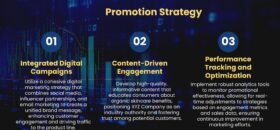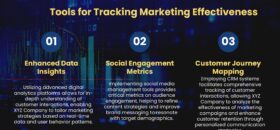Marketing Plan
Marketing plan templates serve as strategic roadmaps detailing market research, target audience, brand positioning, marketing mix, SMART goals, resource allocation, and performance tracking. These steps drive marketing success efficiently.
Key Elements of a Marketing Plan
Steps to Craft an Effective Strategy
Updated: Dec 20, 2024
























Discover similar templates
New Year Plan
New Year Plan Templates are essential for creating a roadmap to success by setting strategic goals, outlining priorities, allocating budgets, managing risks, tracking KPIs, and motivating teams through effective communication and regular...
Social Media Plan
Social Media Plan Templates help build audience growth and brand awareness. Include audience analysis, clear goals, content strategy, platform selection, performance tracking, and regular reviews to stay ahead.[pac_divi_table_of_contents...
Research Plan
Research Plan Templates clearly define scope, methods, and timelines, distinct from sales decks. They set clear objectives, review rigorous literature, address ethics, and foster ongoing refinement.[ds_image_gallery thumbs_alignment="vertical"...
Summary
A marketing plan distinguishes itself by outlining long-term strategies for promoting products or services to achieve business goals, unlike sales or investor pitch decks. Key elements include market research, target audience, brand positioning, marketing tactics, budget allocation, and performance metrics. Essential tips for crafting an effective plan involve conducting deep market research, setting SMART objectives, profiling the target market, crafting value propositions, outlining the marketing mix, allocating resources wisely, and monitoring performance. These steps ensure a comprehensive roadmap guiding marketing efforts towards success.
Outline
- The Executive Summary
- The Market Research
- The Target Audience
- The Marketing Objectives
- The Marketing Strategy
- The Budget Allocation
- The lmplementation Plan
- The Monitoring and Evaluation
- The Conclusion
- The Appendices
Tips for Crafting the Marketing Plan
A marketing plan is different from other pitch decks such as sales or investor decks because its primary objective is to outline strategies for promoting and positioning a product or service to achieve business goals. Unlike a sales pitch deck that focuses on immediate conversion or an investor deck that seeks funding, a marketing plan details the long-term vision, target market, promotional tactics, and performance metrics. It is a comprehensive roadmap guiding marketing efforts to ensure consistency and effectiveness.
It should include the following key elements:
Market research and analysis.
Clearly defined target audience and buyer personas.
Brand positioning and unique selling propositions (USPs).
Marketing strategies and tactics.
Budget and resource allocation.
Performance metrics and key performance indicators (KPIs).
Here are some tips for making an effective marketing plan:
1. Deep Dive into Market Research:
Conduct thorough market analysis to understand industry trends, competitor strategies, and customer behavior.
Use data from surveys, focus groups, or market reports to inform your understanding.
2. Define Clear Objectives:
Set SMART (Specific, Measurable, Achievable, Relevant, Time-bound) goals for your marketing efforts.
Examples include increasing brand awareness, generating leads, or boosting sales.
3. Profile Your Target Market:
Develop detailed buyer personas to represent your ideal customers.
Segment the market based on demographics, psychographics, and behavior.
4. Craft a Strong Value Proposition:
Clearly articulate what makes your product or service unique and valuable.
Highlight how your offerings solve customer problems better than competitors.
5. Outline Your Marketing Mix:
Detail how you will use the 4Ps (Product, Price, Place, Promotion) to reach your target audience.
Include strategies for product development, pricing models, distribution channels, and promotional activities.
6. Allocate Resources Wisely:
Break down your marketing budget and allocate funds to different activities (advertising, content creation, events, etc.).
Ensure you have the right tools, technology, and personnel to execute your plan.
7. Monitor and Adjust:
Identify key performance indicators (KPIs) to measure the success of your marketing efforts.
Set up regular review periods to assess performance and make necessary adjustments to stay on track.
By following these tips, you can create a comprehensive and effective marketing plan that guides your promotional activities and drives towards achieving your business goals.




